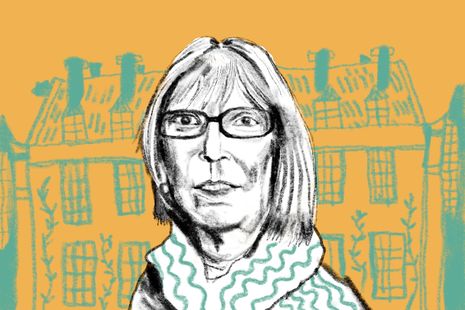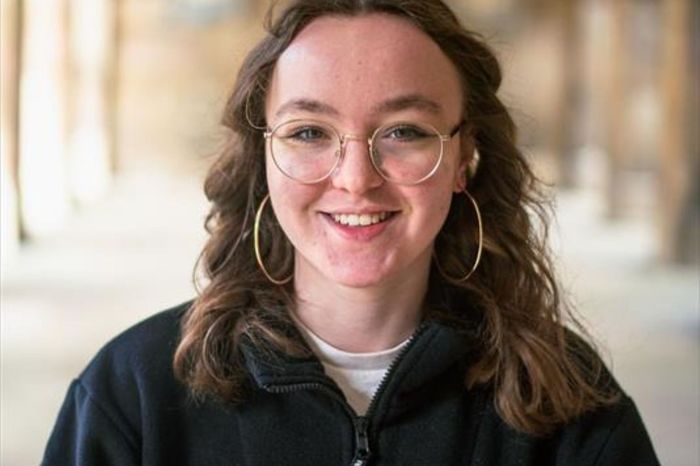‘My sanity was saved by being an activist’: Baroness Coussins on the House of Lords and human rights activism
Mariam Al-Badry meets Baroness Coussins to discuss her career advocating for human rights

When Jean Elizabeth Coussins matriculated in 1970, Cambridge remained as stuffy as ever. Reflecting on her experience at Newnham College, she describes the “very quaint rules enforced at the time”. For instance, “there was still a rule that if you were outside after dusk, you had to wear a gown,” and at Newnham, if students wanted to be out past 10pm, they “had to sign a form to say that you were going out and that you intended to come back”. The proctors, a kind of university police force, “had the power to fine you if you broke the rules.” She recalled that her friends “once got fined six shillings and eight pence for playing frisbee in the wrong paddock at St John’s!”
“There weren’t any mixed colleges, and the ratio of men to women was 10:1”
However, she notes that many rules were abandoned during her time, “an era of student politics” where issues were often contested. Coussins herself embraced such contestation by campaigning for changes like “student representation on the Senate,” and being particularly active in the “women’s movement”. She arrived in Cambridge at a time when “there weren’t any mixed colleges, and the ratio of men to women was 10:1; girls had to be a hell of a lot cleverer to get into Cambridge than boys did!” Coussins explains that “one of the campaigns [she] was involved with at the time was to persuade some of the men’s colleges to admit women”. Additionally, when HSPS (then called SPS) was first introduced, she campaigned to “get a women’s studies element integrated into the course”.
Coussins remarks that her “sanity was saved by being an activist,” and that it was this, “more than the academic side of Cambridge,” which prepared her for a career advocating for human rights and corporate social responsibility. Nevertheless, she emphasises the value of her French and Spanish studies in enhancing her love of literature, languages, and other cultures.
“I think you have to start by asking yourself, if the House of Lords were a wholly elected chamber, would that make the process of scrutiny and revision more efficient”
Given her forward-thinking activism at Cambridge, one wonders how she is able to justify her position in the House of Lords, a similarly old, traditional, and arguably elitist institution. But Baroness Coussins sees the House of Lords as incredibly important for our democracy; “a second chamber which provides scrutiny of the government and ensures checks and balances”. “We go through proposed legislation line by line with no time limits, unlike the Commons. So I think you have to start by asking yourself, if the House of Lords were a wholly elected chamber, would that make the process of scrutiny and revision more efficient, and I don’t think it necessarily would. Although, I think there are lots of ways in which it desperately needs reforming.”
She highlights the value of crossbenchers who provide “independent expertise,” and, because they “constitute a critical mass in the House of Lords,” the government “never has an automatic overall majority in the Lords as it does in the Commons,” thus facilitating effective scrutiny.
Without the need to represent a constituency, Coussins feels that she can represent those who otherwise go unrepresented. Certainly, for several years, she has “spearheaded a campaign in the House of Lords to grant asylum to the Afghan interpreters and their families who worked with our armed forces, after we pulled out of Afghanistan”. The campaign has now managed to grant asylum to 7000 of these interpreters and their family members, essential as many of them face danger if they remain. More broadly, Coussins has been involved in “a campaign to try and get a UN security council resolution on the protection of civilian interpreters working in conflict zones”.
“There is a lot of alignment between NGOs and the self-determination of the population”
She is also former president of the Peru Support Group, and is otherwise “involved in NGOs working in Peru and Colombia”. Given this involvement in Latin America, I am interested in the balance that western human rights activists strike between respecting local self-determination and promoting an international agenda of human rights. Regarding a possible conflict here, Coussins assures me that “in countries like Peru and Colombia, there is a lot of alignment between NGOs and the self-determination of the population”. The Peru Support Group, she says, works prominently with the indigenous communities. Some issues taken up include the forced sterilisation of indigenous women, and access to justice for indigenous communities who don’t speak Spanish.
In addition, she is very active in campaigns regarding “serious concerns with mining companies” whose activities have had “life-threatening adverse impacts on local communities, particularly the indigenous communities, by polluting rivers, damaging food security, and forcing population displacement”. Indeed, much of Coussins’ human rights work aims to protect indigenous communities against corporations and governments who implement policies harmful to their interests.
I also inquire about her work on corporate social responsibility, asking whether such policies can truly mitigate the harms of corporate greed. Coussins suggests that “companies with any sense and seriousness about their sustainability will be taking these things seriously, and be motivated by it as a commercial drive” and “an important part of their business strategy”. This is increasingly the case because “consumer purchasing patterns and purchasing processes now include a consideration of supply chain ethics and workforce ethics”. So, the sustainability of a company must include “being able to demonstrate that they are willing to do things for the environment and their workforce, and being responsible in terms of product development and marketing”. Of course, she adds, there are some companies who aren’t doing anything on those fronts. However, she is optimistic that “if you look at the top 100 or 200 UK registered companies, you’d find that almost all of them have got very sophisticated corporate social responsibility plans and actions”.
 News / Colleges charge different rents for the same Castle Street accommodation2 March 2026
News / Colleges charge different rents for the same Castle Street accommodation2 March 2026 News / King’s hosts open iftar for Ramadan3 March 2026
News / King’s hosts open iftar for Ramadan3 March 2026 Theatre / Lunatics and leisure centres 4 March 2026
Theatre / Lunatics and leisure centres 4 March 2026 News / Angela Merkel among Cambridge honorary degree nominees27 February 2026
News / Angela Merkel among Cambridge honorary degree nominees27 February 2026 News / News in Brief: waterworks, wine woes, and workplace wins 1 March 2026
News / News in Brief: waterworks, wine woes, and workplace wins 1 March 2026








